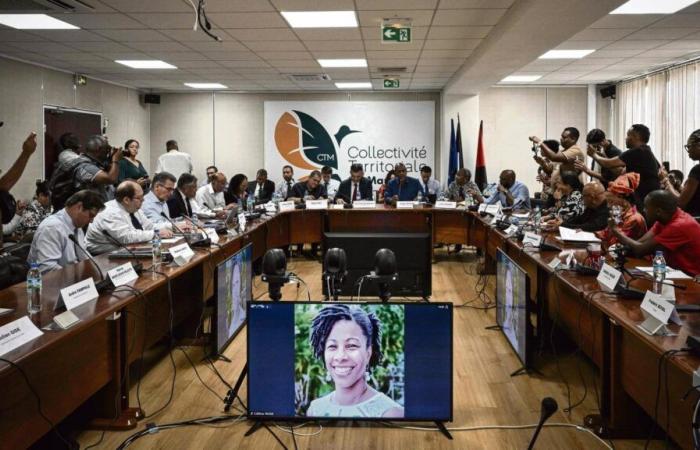
François-Noël Buffet will be able to strut his stuff in Fort-de-France. At the end of a week of tensions in Martinique, the Minister of Overseas Affairs lightly declared that he “would come willingly as soon as the different actors have all reached an agreement”. This is now partly done, after the signing of a price reduction protocol between the prefect, the local authority of Martinique (CTM) and representatives of the economic world.
In response to the large-scale movement against the high cost of living which has set Martinique ablaze since the 1is September, the prices of 6,000 food products will gradually decrease, up to 20%, from 1is January 2025, thanks to an effort on the taxation of imported products.
The dock dues, collected by the CTM and the island’s town halls, will be reduced to a zero rate on a series of 54 families of common goods (pasta, milk, butter, red beans, cheese, etc.), which are not included in competition with local production (rice, water, etc.).
The RPPRAC puts protectionist taxation and distributor margins back to back
In return, the State will apply zero percent VAT on 69 families of consumer products. Not enough to convince the representatives of the Rally for the Protection of Afro-Caribbean Peoples and Resources (RPPRAC), who left the negotiating table. “We have not obtained guarantees on the timetable and on the possibilities of sanctions. Furthermore, the RPPRAC is calling for a reduction in prices on all food products! » scolds its treasurer, Gwladys Roger. A position shared by Marine Le Pen. The RPPRAC announces that it will continue its mobilizations.
“The total abolition of dock dues is not desirable. Our products from fishing, agriculture and industry must not suffer from unfair competition from the Metropolis. Martinique must not become a simple consumption territory. This tax is a tool of political, industrial and popular sovereignty of our island”retorts the GDR deputy Marcellin Nadeau, who validated an agreement to end the crisis, which he nevertheless considers “insufficient”.
The fact remains that, with the populist posture of the RPPRAC, placing back to back the abusive margins generated by the players in large-scale distribution and dock dues, it is ultimately the finances of the island’s public services which will have to bear the burden. ‘effort. Moreover, Stéphane Hayot, of the powerful import-export group Bernard Hayot, keeps up the pressure: “If the State is there, we will be too. »
In terms of territorial continuity, the agreement includes the establishment of a compensation mechanism for approach costs, with shipping costs covered by the State. On the other hand, a compensation fund of 11 million euros will be supplemented by transport and distribution professionals and the State. “We will be vigilant about the application of commitments to Parliament, in a tense budgetary context, warns Marcellin Nadeau. Citizens have become aware of the need to change the economic model. »
In this regard, the GDR deputy will table a law « anti-trust » to challenge monopolistic positions. In Martinique, prices are worked out with 14 intermediaries (logistics, transport, etc.) compared to 3 in France, causing accumulations of margins. And some actors are owned by the same groups.
Alongside those who struggle!
The social emergency is Humanity’s priority every day.
- By exposing employer violence.
- By showing what those who work and those who aspire to do experience.
- By giving keys to understanding and tools to employees to defend themselves against ultraliberal policies that degrade their quality of life.
Do you know of any other media that does this? Support us!
I want to know more.





